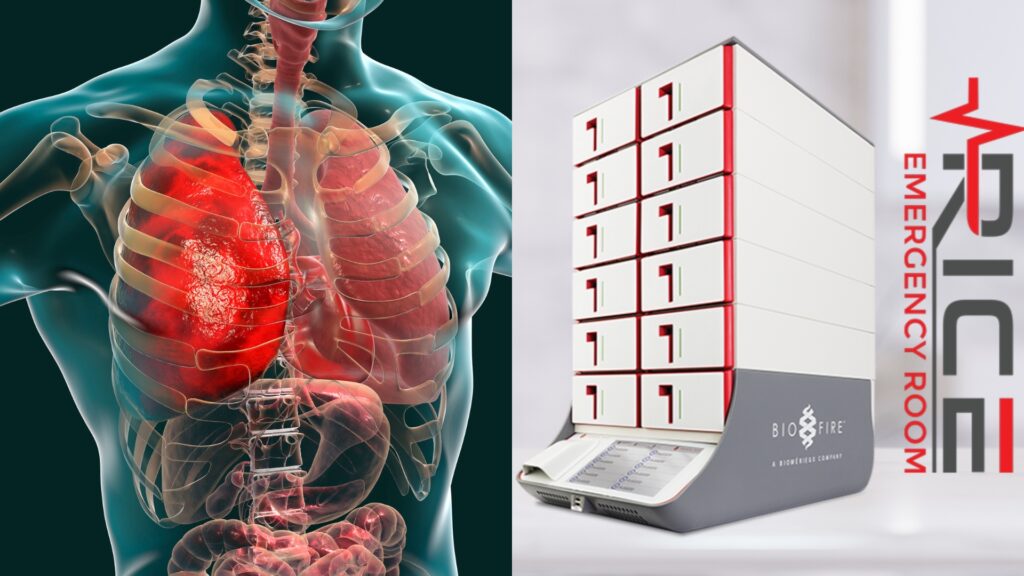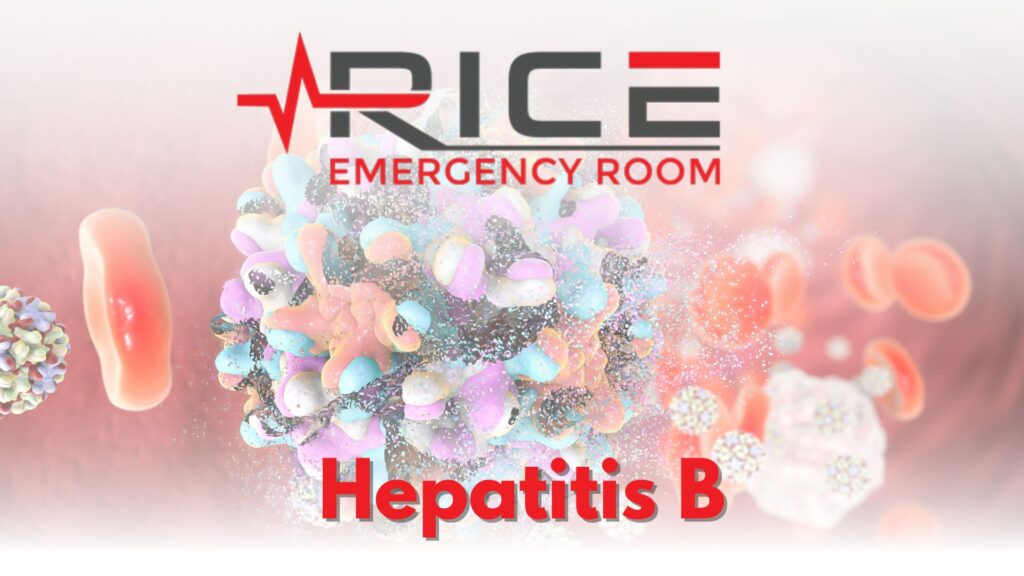
Navigating Respiratory Illness with Cutting-Edge PCR Technology
BioFire Diagnostic Tests for over 22 Respiratory Pathogens
Respiratory illness hits hard during seasonal changes. The late summer and early fall can be a precarious time for people with asthma and allergies. It’s the season when many emergency rooms, including ours in West U. and surrounding communities, witness an influx of patients grappling with exacerbated symptoms. The culprits often include airborne irritants like ragweed pollen and mold spores, as well as respiratory infections of flu, RSV and COVID. If you’re dealing with respiratory challenges, timely diagnosis and treatment are crucial to manage your symptoms effectively and prevent complications. This is where cutting-edge diagnostic technology, such as the BioFire PCR, can make a real difference.
What is PCR?
Before diving into the specifics of the BioFire test, it’s essential to understand what PCR or Polymerase Chain Reaction is. Developed by Dr. Kary Mullis in 1983, PCR is a revolutionary method used to amplify tiny segments of DNA (Saiki, et.al). By repeatedly heating and cooling the DNA, PCR allows for the replication of a specific DNA sequence millions or even billions of times. This amplification allows scientists to detect even minuscule quantities of DNA, making it a potent tool for diagnostics.
What Is the BioFire Test?
The BioFire system uses multiplex polymerase chain reaction (PCR) technology to amplify and detect the genetic material of various pathogens. Unlike traditional diagnostic methods, which may require several hours—or even days—to produce results, the BioFire tests can deliver accurate outcomes in about an hour. This rapid turnaround is a game-changer in emergency and critical care situations where every moment counts. (BioFire 2020)
Various Panels for Specific Needs
BioFire offers a range of panels designed to test for different types of infections. For instance, the Respiratory Panel (RP) is particularly beneficial during the late summer and early fall. It can test for up to 22 pathogens including influenza, RSV, and SARS-CoV-2 (COVID-19), among many others. Being able to test for multiple pathogens in a single run not only expedites diagnosis but also aids healthcare providers in tailoring the most effective treatment plans for their patients. This is incredibly valuable for asthma and allergy sufferers who are at a higher risk of experiencing severe complications from respiratory infections.
An Expert Approach to Respiratory Illness
While the speed and breadth of BioFire’s capabilities are undeniable advantages, it’s essential to understand that these tests are part of a broader diagnostic approach. The doctors at Rice ER will interpret BioFire results in the context of clinical observations and other laboratory findings to ensure an accurate and comprehensive diagnosis. For example, a positive result for a particular pathogen does not automatically indicate that it’s the sole cause of your symptoms. Other factors, like environmental triggers or underlying conditions, could also be contributing to your situation.
When to Go to the Emergency Room
Respiratory distress can escalate quickly, turning a manageable situation into a life-threatening one. When experiencing severe shortness of breath, chest tightness, or a sudden, persistent cough, it may be time to seek emergency care. Likewise, if over-the-counter medications are not alleviating your symptoms or if you’re dealing with complications like respiratory infections, a rapid diagnosis can be crucial for effective treatment.
Our BioFire system can quickly identify the pathogens that may be exacerbating your condition, thereby enabling tailored and timely treatment. By staying vigilant and recognizing early warning signs, you can respiratory illness effectively, minimizing the risk of severe complications. When it comes to these pressing healthcare concerns, you can rely on Rice Emergency Room for prompt, accurate, and comprehensive care.
Works Cited
Saiki, R.K., Gelfand, D.H., Stoffel, S., Scharf, S.J., Higuchi, R., Horn, G.T., … & Mullis, K.B. (1988). Primer-directed enzymatic amplification of DNA with a thermostable DNA polymerase. Science, 239(4839), 487-491. BioFire Diagnostics. (2020). Panels. Retrieved from BioFire’s official website https://www.biofiredx.com/



